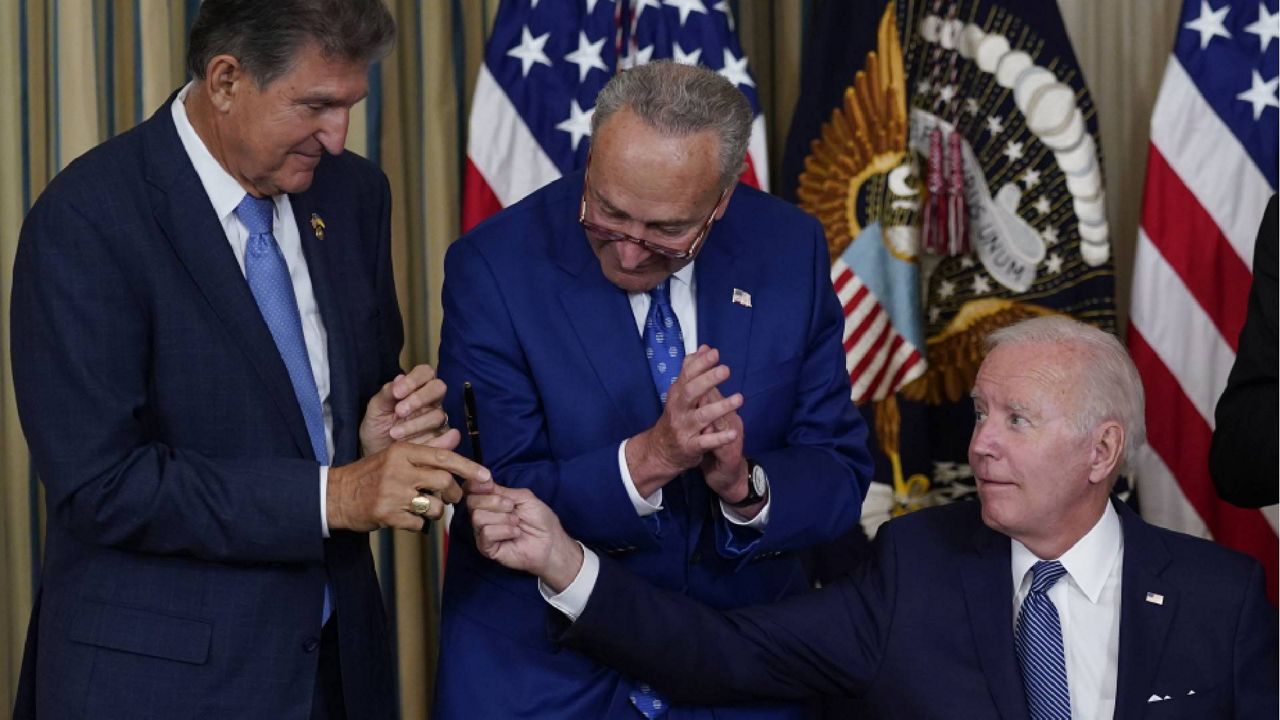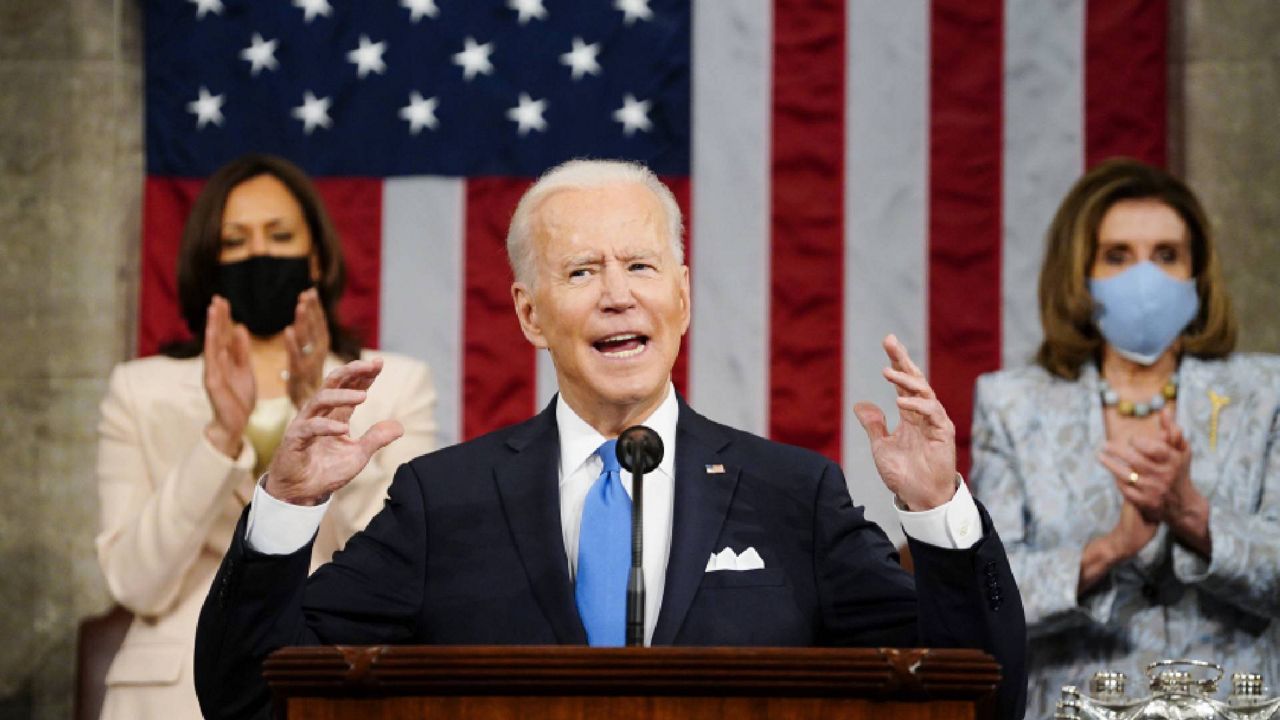A key Senate panel on Tuesday took up the issues of domestic extremism and white nationalism as lawmakers seek to address the cause of a racially-motivated Buffalo shooting that left 10 black Americans dead, with experts testifying that far-right, extremist violence is an “enduring threat” that can be exacerbated by politicians and media figures.
Families of the Buffalo shooting victims also met with lawmakers in Washington, D.C., on Tuesday as the Senate Judiciary Committee heard from the son of one woman killed in that supermarket rampage and a slate of domestic terrorism experts.
Authorities in Buffalo have said the 18-year-old shooter specifically targeted the Black community there and had posted online about “replacement theory,” the racist ideology that there is a plot to diminish the influence of white people.
Robert Pape, a political science professor at the University of Chicago, told lawmakers that the race-driven fears which can inspire someone to violence are often parroted by prominent politicians and media figures.
“Politicians in America, in the mainstream, are either directly or indirectly stressing the ‘great replacement’ and becoming more popular,” he said. “Donald Trump, the former president of the United States, is more powerful today as a result of January 6, than he would have been without January 6. That is a very, very worrisome trend, sir.”
The son of 86-year-old Ruth Whitfield, one of the 10 victims of the shooting last month, appeared before the Senate Judiciary Committee and stressed the importance of “calling it what it is…white supremacy.
“This young man, though he pulled the trigger, others loaded the gun,” said Garnell Whitfield Jr., who pressed lawmakers to act against the “cancer of white supremacy and the domestic terrorism it inspires.”
In his opening statement, U.S. Senate Majority Whip Dick Durbin called out Fox News host Tucker Carlson and other figures on the network for “dragging racist conspiracy theories into mainstream America.”
Durbin pointed out that “more than 400 episodes of Tucker Carlson's show have amplified the so-called ‘great replacement conspiracy theory.’”
In contrast, Republican Senator Chuck Grassley focused his remarks on the violence committed by those on the left, urging lawmakers to condemn extremist violence from “all sides of the political spectrum.” He and other Republican senators also focused on threats to the Jewish community and law enforcement, which experts said were also critical areas of investigation.
During the hearing, Whitfield Jr. implored the Senators to ask themselves what they could do to prevent these attacks from happening. “Is there nothing we can do?” he asked the panel. “If there is nothing then, respectfully, senators, you should yield your positions of authority and influence to others that are willing to lead on this issue.”
“My mother's life mattered,” said the Former Buffalo Fire Commissioner during his emotional testimony. “Your actions here today will tell us how much it matters to you.”
One former law enforcement official told senators that despite domestic terrorism incidents growing more visible, law enforcement does not prioritize resources to track and investigate those crimes.
“While recent attacks have raised public awareness of white supremacist and far-right militant violence, it isn't new. It's been an enduring threat in the United States since its founding,” said Mike German, a former FBI special agent who now serves as a fellow with the Brennan Center for Justice's Liberty & National Security Program. “Yet the law enforcement response remains deficient despite deadly results.”
Senate Republicans last month blocked a vote on a House-passed bill that would require federal law enforcement officials to boost their reporting and training around domestic terrorism, including “white-supremacist-related incidents.”
German on Tuesday said the key was to create a “flexible” federal law enforcement that has time to respond to complaints and closely coordinate with local police.
He also said the FBI needs to adjust how it treats incidents of domestic terrorism, as it does not currently track enough data on violence committed by extremist groups.
“If a white supremacist murders somebody, the FBI could consider the crime an act of domestic terrorism, a hate crime or simply a violent crime,” he explained. “If the FBI categorized it as domestic terrorism, the investigation would be well-resourced and robustly investigated, but it often puts white supremacist violence into lower-prioritized programs … [and] most incidents are deferred to state and local police for investigation.”
Unsurprisingly, gun reform also took center stage during the committee hearing, with Senators discussing regulations regarding age limits for purchasing guns and bans on AR-15 style rifles.
Robert Pape warned lawmakers against proposing gun reform laws that are too ambitious and aggressive as not only will the laws “almost surely not pass,” he added that these proposed reforms may even contribute to the growing polarization in the country.
“Many people are already concerned the federal government is coming for their rights,” said Pape.“If we push legislation that goes nowhere, we’re inflaming the problem more than solving it.”
Before the hearing concluded, Senator Durbin responded to Whitfield Jr.’s call to action.
“We accept your challenge, we were elected to do a job” said Sen. Durbin. “There’s no excuse. And I hope that... we can summon the political will and courage to get that done.”
CORRECTION: An earlier version of this story misattributed quotes made by Mike German to another witness at Tuesday's hearing. This article has been updated to correct that error.









